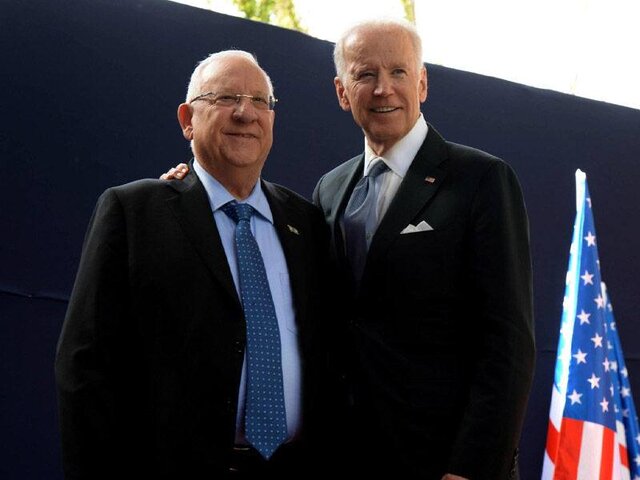In line with this, the recent visit of Reuven Rivlin, former president of the Zionist regime to the United States and his meeting with President Joe Biden is assessed as futile effort of the authorities of the regime in order to broaden the US supportive umbrella to Israel and raising impediments on the way to revive JCPOA. As we noticed, in the last round of nuclear talks during Barak Obama, the Zionist along with Saudi Arabia authorities spared no effort to make to talks fruitless. Although they, ultimately, did not reach their goal and JCPOA was agreed upon.
Now, it happens again while the former president of the Zionist regime made his trip to Washington only a few days before his tenure of office was finished. But he received a cold shoulder from Joe Biden, the President of the United States. However, it was not the only effort made by the authorities of the Zionist regime. Naftali Benet, the new prime minister of the Zionist regime is also going to pay a visit to the While House and have a meeting with President Joe Biden and coordinate the general policies of the Zionist regime on the region and Iran with him. Although Biden renewed the US commitment to preserve the sustain security of the Zionist regime, but the resultant of reports show that the While House leaders are not satisfied about the policies adopted by the authorities of the Zionist regime in broadening internal crisis of the occupied territories.
Since Joe Biden’s victory on 2020 US presidential election, the least contacts between the authorities of the Zionist regime and the While House leaders were made within the past seven decades; because Biden’s team is strongly unhappy about the adventurism of Likud party in the region. The most pivotal differences between the White House and the authorities of the Zionist regime are the continuation of settlement construction in the occupied territories as well as the Zionist Israeli army attacks and extremist settlers to Sheikh Jarrah region in Eastern Quds. Another issue which was raised in the course of the meeting between the two presidents was the expansion of Iranian influence in the region and approaching views among Iran and 4+1 in Vienna. In the course of the meeting, the former president of the Zionist regime tried once again to encourage Biden to impose sanctions against Iran and to dissuade him to return back to JCPOA. It appears that his effort led to nowhere. Joe Biden’s team considers Trump withdrawal from JCPOA as an unjustifiable act. That’s why they plan for the US return to JCPOA. Although the democrat administration tries to include both other issues to JCPOA talks and make some changes in the timetable therein.
Another pivotal issue in the agenda of talks between the former president of the Zionist regime and the president of the United States was the expansion of Iranian influence among the countries of the axis of resistance, which has led to empowerment of anti-Zionist movements in the region. In the 12-day Gaza war that ultimately led to the victory of Palestinian combatants, the majority of Israeli army commanders believed that Hamas and Islamic Jihad were under the influence of field experiences of martyr Ghassem Soleimani and other field commanders of the Islamic Republic of Iran.
After the Gaza war that led to the defeat of the Zionist regime army, the configuration of the regime was undergone major changes and Benjamin Netanyahu was driven out of the power circle. The Changes created in the power circle and the exit of Likud party from the scene was probably done by a hint from Biden’s team. Unlike the former president Trump, the democrat president of the US has no positive impression towards Israeli extremist parties. Former president Trump was very close to extremist parties of the Zionist regime, in a way that he had to withdraw from JCPOA under the Zionist lobby.
The Regime has faced strong political isolation domestically ever-since extremist parties defeated, because the accumulation of domestic problems as well as military defeat in Gaza had created strong critical conditions for the new cabinet of the Zionist regime. Now, it seems that the new cabinet of the Zionist regime headed by Naftali Bennet has adopted more conservative attitude in comparison with that of the former cabinet of Benjamin Netanyahu. Naftali Bennet tries to iron out the wrinkles between Tel Aviv and Washington and does not act in a way that fans the White House anger. That’s why Knesset the parliament of the Zionist regime elected recently Isaac Herzog with 78 votes out of 120 seats as the eleventh president of Israeli regime. Changes are coupled with an important message.
The message is clear; Israeli governance body has changed according to the new policies of the White House and President Biden himself. The new cabinet will not take any political and field measures without coordination with Joe Biden’s team. Obviously, the changes mean as a kind of coordination between Tel Aviv and Washington, because Joe Biden’s team is not willing to pay high political and international prices for the adventurism of the Zionist regime.










0 Comments